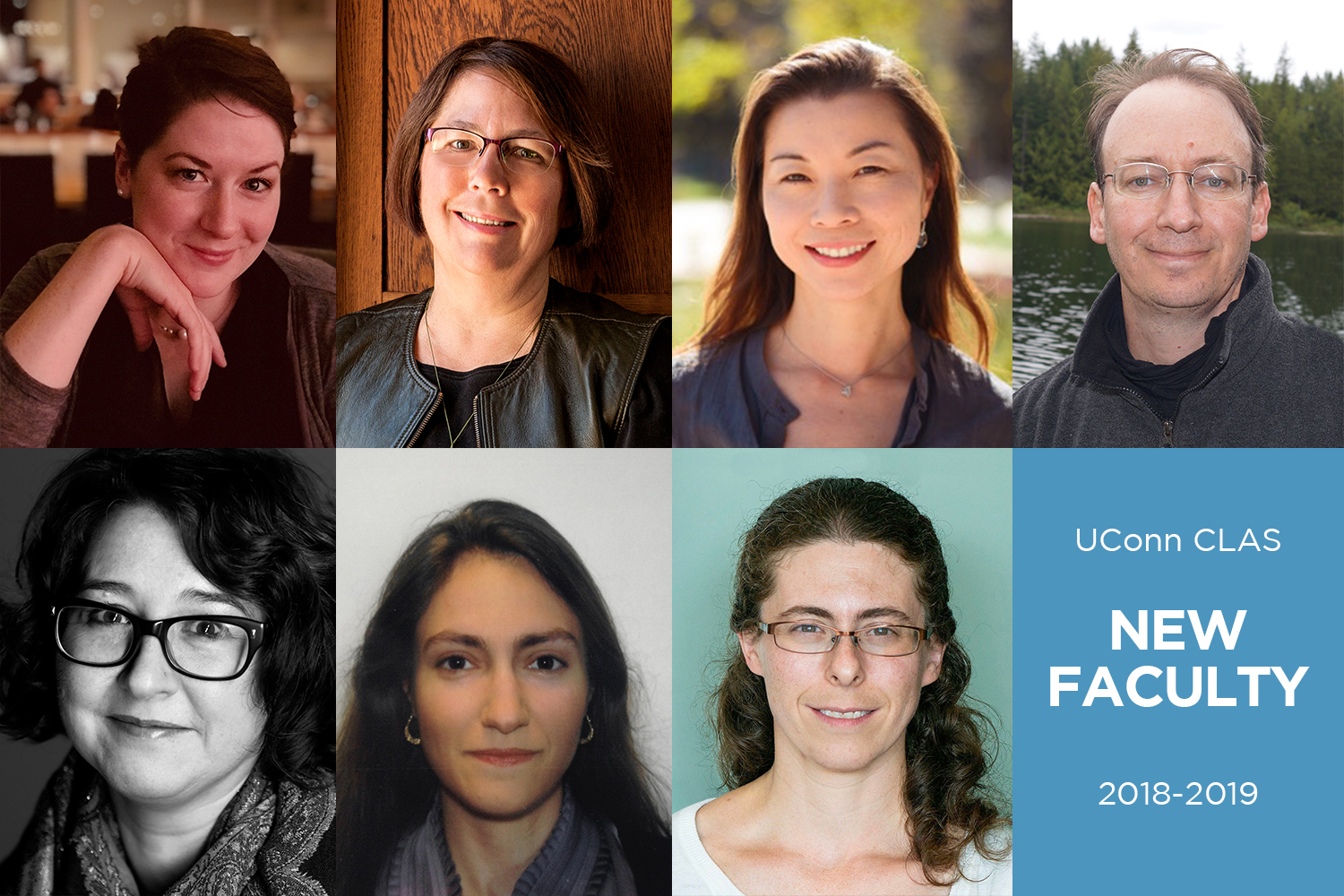Seven new tenure-track faculty members joined the College of Liberal Arts and Sciences this fall. These talented scholars and educators will teach in the departments of anthropology, ecology and evolutionary biology, English, history, journalism, and psychological sciences.
Daniel Bolnick joins the Department of Ecology and Evolutionary Biology as a full professor. His research interests focus on how evolution maintains genetic variation within species. Most recently, he has studied how parasites and their hosts co-evolve, and how their antagonism shapes variation in host immunity.
Deborah Bolnick joins the Department of Anthropology as an associate professor. Her research explores how sociopolitical forces, historical events, and social inequalities shape human biology, genomic, and epigenomic diversity. She does this by analyzing DNA from ancient and contemporary peoples, in conjunction with other lines of evidence, to help reconstruct population histories in the Americas.
Amanda Crawford, a veteran political reporter and nonfiction writer, joins the Department of Journalism as an assistant professor. Her current research focuses on the role of journalists in democracy and the importance of truth in public discourse. She also writes about gender issues and journalism ethics and, as a literary journalist, is interested in the intersection of creative writing and reporting.
Fumiko Hoeft comes to UConn as a professor in the Department of Psychological Sciences and as the director of the Brain Imaging Research Center. She is a neurophysiologist and systems/cognitive neuroscientist with theoretical interests in the neurobiological mechanisms underlying individual differences in brain maturational processes, acquisition of skills such as literacy (and atypicality such as dyslexia) and how they interact. She employs a variety of neuroimaging techniques (e.g. fMRI, T1 aMRI, DWI, MRS, NIRS, EEG/MEG, TMS/tDCS), analytical approaches (e.g. machine learning, graph theory), and designs (e.g. imaging genetics, perturbation).
Alexandra Paxton also joins the Department of Psychological Sciences as an assistant professor. As a cognitive scientist and data scientist, Paxton studies how people collaborate, bond, and fight. She does this by weaving together a variety of data sources from the lab and the real world for a converging tapestry of the many ways in which human language, movement, decisions, and emotions change during social contact.
Sara Silverstein joins the Department of History as an assistant professor. Her work focuses on the history of internationalism, social policy, global health, refugees and migrants, and human rights. Her current book project explores the origins of an international principle supporting universal healthcare and the growth of institutions in the first half of the twentieth century that worked toward making this principle a reality.
Evelyn Tribble joins the Department of English as a full professor. Her research interests center around Shakespeare, performance, memory, and skill. Her work explores theatrical history through the lens of Distributed Cognition, asking how Shakespeare’s company met the astonishing cognitive demands of their profession, particularly while performing up to six different plays a week.



